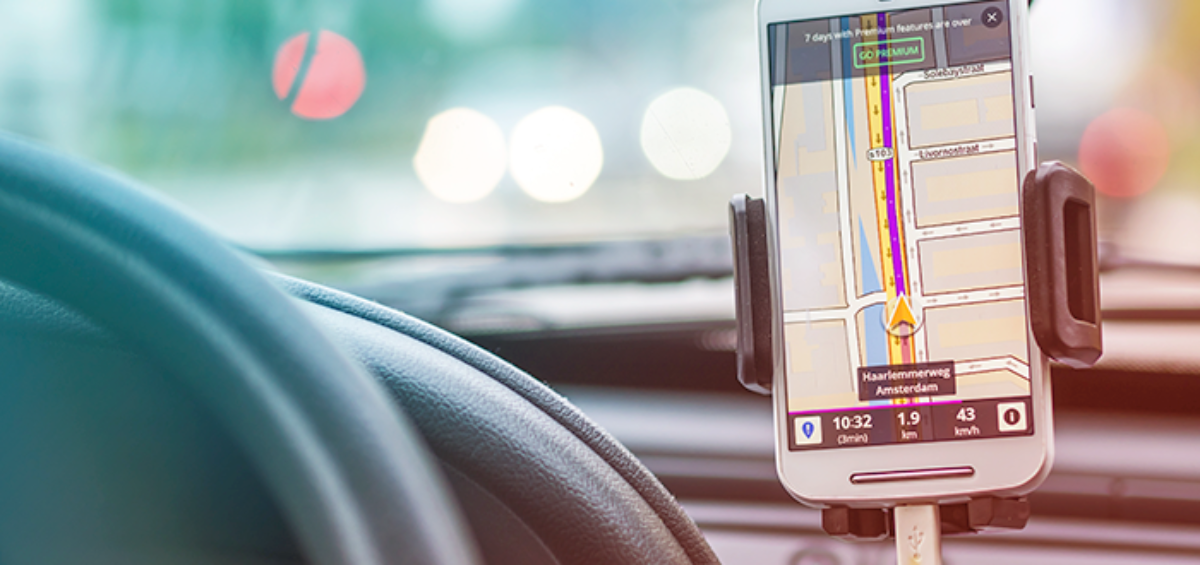Take measures to avoid these common travel accidents so that you return home safely from your next business trip.
Delays and cancellations are definitely hassles, but travel accidents are the surest way to undermine your next business trip. Travel accidents come in many different forms, and some are more avoidable than others. But, when you take the right precautions, you can limit the chance of a mishap that sends you to the hospital.
In general, the best way to avoid travel accidents is to live in the moment and focus on the task at hand while traveling. But here’s a more detailed look at 7 of the most serious things that can happen on business trips — as well as how to avoid them.
1. Tripping or Slipping
When traveling for business, you’re often in a hurry. You rush to catch the shuttle to the rental car facility. You push to snag a taxi. You scurry down stairs to jump on a train. Business trip itineraries are typically jam packed, and most travelers do their best to stay on schedule.
But business trips also take travelers to places where they are unfamiliar with their surroundings. Rushing and hurrying to do any number of things can lead to trips and slips. Trips and slips can be embarrassing at best, but they can be quite serious at their worst — so serious they can result in a trip to the emergency room.
How to Avoid Tripping or Slipping:
Take your time. Yes, you want to be punctual for meetings and other engagements, but it’s far more important that you get there safely. After all, if you trip or slip and end up in the hospital, you won’t get there at all.
“Do not dwell in the past, do not dream of the future, concentrate the mind on the present moment.” – Buddha
2. Traffic Accidents
Many of the reasons why business travelers trip or slip are the same reasons why they are prone to traffic accidents, too. When you rent a car on a business trip, you’re often in a hurry to get to your destination, and you’re often unfamiliar with the way to get there.
Traffic accidents are among the most common travel accidents for these very reasons. They can happen while you’re riding in a taxi or an Uber/Lyft, too, but you have little control in those situations. When you’re behind the wheel of a rent car, though, you can do specific things to limit the chances of a traffic accident.
How to Avoid Traffic Accidents:
Have a plan when driving in unfamiliar places. Map out your routes beforehand, and do some research on where and how to park at hotels, offices and other locations. As an added benefit, planning ahead helps you get to know your destination so that you can make the most of your time there. Also, stay off your phone while driving on a business trip. Phones are always distractions, but they can increase the chance of travel accidents when you’re driving in a strange place.
3. Muggings
As a business traveler, you shouldn’t be fearful of visiting unfamiliar places. But, that said, realities exist in some cities that you should be aware of before you go.
For example, muggings happen every day in cities around the world. Muggings have mental consequences for sure, but they can also have physical consequences that can put you in the hospital. Again, take proper measures to help ensure your safety while traveling for work.
How to Avoid Muggings:
There are many safety precautions you should take while traveling for work. In general, make sure you carefully plan your routes when walking around a city. Stay where it’s crowded and well lit, and do your best to blend in so that you don’t look like an out-of-towner.
4. Sports Injuries
This may seem like a strange addition to this list. After all, who has time for sports when traveling for work? But many business travelers find time for recreation while away from the office.
For example, you might go for a run through Central Park while visiting New York City. You might hit the slopes during a wintertime visit to Santa Fe or Salt Lake City. Or you might do some light hiking on a work trip to Phoenix.

Recreation is a healthy choice during a work trip. Work travelers should just make sure that their recreation doesn’t result in travel accidents and hospital visits.
How to Avoid Sports Injuries:
First, take the right attire for your activity. For example, don’t go hiking in dress shoes. And, second, do what you’re comfortable with. If you’ve never gone skiing before, your work trip to the mountains isn’t the time to attempt a black run.
The telltale signs of blood clots are swelling in an arm or leg, as well as tender, warm or red skin in a concentrated area.
5. Dehydration
Travel can be a dehydrating activity due to air filtration systems on planes and the general lack of access to water. Business travel can include lots of walking, too, and sometimes the climate in a certain destination can unexpectedly exacerbate a minor case of dehydration.
Dehydration can be a serious condition, too, and it’s certainly one that can lead to a hospital visit under the most severe circumstances. Thankfully, among travel accidents, dehydration is one of the most avoidable.
How to Avoid Dehydration:
Be intentional about drinking water. Even if you don’t feel thirsty, drink lots of water. By the time you experience symptoms of dehydration, it may be too late for water alone to do the trick. Also, stick to bottled water if you’re in a place where water quality is a concern.
6. Blood Clots
Blood clots, also known as deep vein thrombosis, are exceedingly rare. That said, they happen most often when you are immobilized for a long period of time — as you are when traveling long distances by plane.
The telltale signs of blood clots are swelling in an arm or leg, as well as tender, warm or red skin in a concentrated area. Those suffering from blood clots may also experience irregular or fast heartbeats, chest pains, lightheadedness or difficulty breathing
How to Avoid Blood Clots:
Moving around is the best way to avoid blood clots. Get up out of your seat on longer flights, even when you don’t need to use the restroom. Flexing and bending knees, ankles and feet can also prevent blood clots. If you are predisposed to blood clots, ask your doctor about compression socks or blood thinner.
7. Respiratory Problems
Air quality can be a serious issue in some places, and air quality can also land some travelers in the hospital. Those with asthma will be most prone to respiratory problems, but they can strike anyone under the right circumstances.
Foreign cities like Beijing may spring to mind when you think of poor air quality, but Paris, Los Angeles and other common business destinations have bouts of poor air quality, too.
How to Avoid Respiratory Problems:
If you have asthma or are otherwise prone to respiratory issues, talk to a doctor before traveling to places with poor air quality. You can also spend a disproportionate amount of time indoors and wear a surgeon’s mask outdoors when visiting a place with poor air quality.
8. Gastrointestinal Issues
Foremost among classic travel accidents are gastrointestinal issues. It’s a lot of fun to sample the local fare when visiting a new place or a foreign country. But exotic cuisine can mean trouble for your stomach — and a trip to the emergency room in some cases.
Water quality can also be an issue in places. Drinking the wrong water can make you uncomfortable in some instances, and it can even send you to the hospital in others.
How to Avoid Gastrointestinal Issues:
Go slow with exotic foods. Consider sampling the local fare during a meal, but order an entrée that’s more familiar to you. And, also, stick to bottled water when traveling in places known for poor water quality.
Be Prepared for Travel Accidents
When you’re on the road for work, your company has a duty of care obligation to look after your wellbeing. For that reason, most companies have in place a plan and procedure for when employees land in the hospital on work trips. Before you travel, make sure you know what your company’s plans and procedures include.
At JTB Business Travel, we are a comprehensive corporate travel agency serving businesses large and small. We even help clients create duty of care plans for when travel accidents and other unexpected issues arise.














Leave a Comment